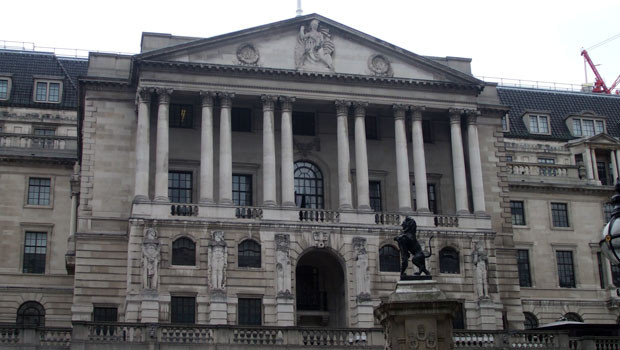Inflation expectations accelerate in latest BoE survey

Inflation expectations continued to accelerate in the Bank of England’s latest inflation attitudes survey, it was revealed on Friday, as actual prices continued to rise at historically-high rates.
The BoE/Ipsos survey for May said when asked to give the current rate of inflation, respondents gave a median answer of 6.1%, up from 5.0% in February.
In its latest consumer price index data, the Bank said prices rose 9% year-on-year in April, and were expected to accelerate further in the coming months.
The survey said median expectations of the rate of inflation for the coming year were 4.6%, up from 4.3% in February, while expected inflation in the 12 months after that returned a median answer of 3.4%, up from 3.2%.
Looking further ahead, when asked about expectations of inflation in the longer term - say in five years’ time - the BoE said respondents gave a median answer of 3.5%, up from 3.3% in February.
“By a margin of 66% to 9%, survey respondents believed that the economy would end up weaker rather than stronger if prices started to rise faster, compared with 59% to 7% in February,” the board said in its statement.
“31% of respondents thought the inflation target was ‘about right’, down from 33% in February.
“The proportions saying the target was ‘too high’ or ‘too low’ were 34% and 18% respectively.”
The Bank said 7% of respondents thought interest rates on things such as mortgages, bank loans and savings had fallen over the last 12 months, compared with 8% in February.
Meanwhile, 66% of respondents said that interest rates had risen, compared with 54% three months earlier.
The Bank of England hiked its key Bank Rate to 1% in its May decision, having brought it from its historic low of 0.1% over four decisions since December.
“When asked about the future path of interest rates, 15% said they expected rates to stay about the same over the next 12 months, compared with 16% in February.
“70% of respondents expected rates to rise over the next 12 months, up from 65% in February.”
When asked what would be “best for the economy”, out of higher interest rates, lower rates or no change, the BoE said 28% thought rates should “go up”, unchanged from three months prior.
22% of respondents thought that interest rates should “go down”, up from 16%, and 28% thought they should “stay where they are”, down from 31% in February.
On a personal level, when asked what would be “best for you personally”, 30% of respondents said it would be better for them if interest rates rose, down from 31%, while 25% said it would be better for them if interest rates fell, up from 20% in February.
Finally, respondents were asked to assess the way the Bank of England was “doing its job to set interest rates to control inflation”.
The Bank said its net satisfaction balance - the proportion satisfied minus the proportion dissatisfied - swung into the negatives to -3%, down from +6% in February.
Reporting by Josh White at Sharecast.com.